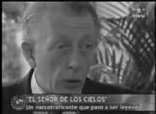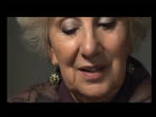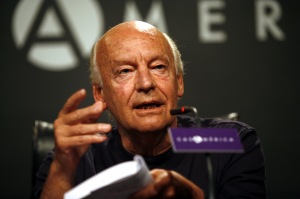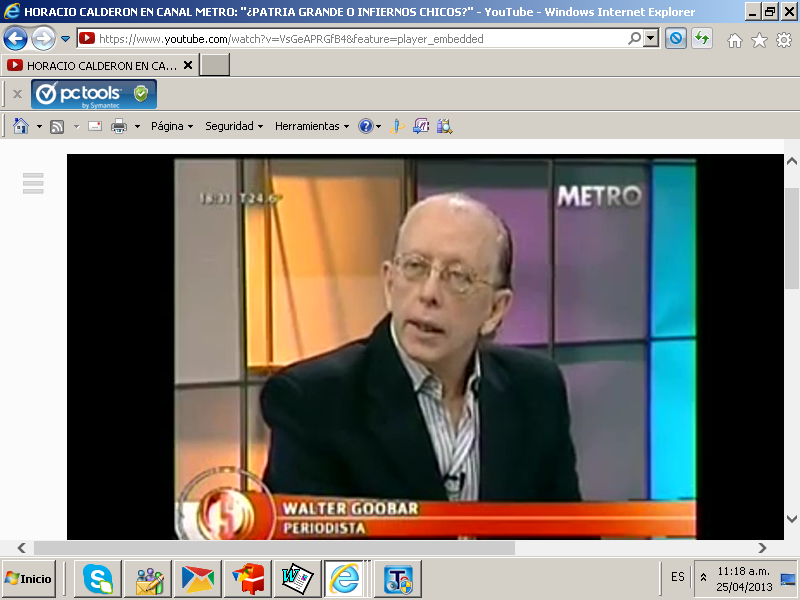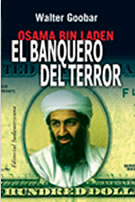
Argentina, terrorism and cover-up
Behind the shadows of the Nisman case:
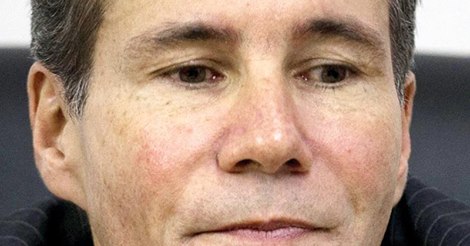
Forner prosecutor Alberto Nisman, who was found deadth in his apartment on january 18th was far from being a hero or a martyr. During the last 10 years he avoided to investigate the local conections of the bombing attack against the Jewish Community Center, AMIA
By Walter Goobar
The death of special prosecutor Alberto Nisman, who shot himself with a 22mm caliber pistol in the bathroom of his apartment on january 18th, is only the last chapter of a dramatic 23-year long history that began with two unsolved terrorist attacks: te bombing of Israel´s Embassy en Buenos Aires on March 17, 1992, killing 29 people and injuring 252.
Two years later, on July 18, 1994, a second car-bomb destroyed the Argentine Jewish Community Center (AMIA) killing 86 people, injuring more than three hundred and turning Buenos Aires into the scene of the bloodiest anti-Semitic attack since the end of World War II.
As to the AMIA bombing, there is strong evidence suggesting a direct involvement of present or former members of security, intelligence and armed forces, who might have perpetrated this terrorist operation under Iranian assignment. The cover-up by the Argentine security establishment is so notorious, that the first trial which took place in 2003 decleared all suspects non-guilty andremoved judge Juan Jos‚ Galeano, who was in charge of the inquiry, and now faces a trial as suspect with former president Carlos Menem for covering the real perpetrators.
All security forces including Federal Police, the Buenos Aires Police, and specially the State Intelligence Service, seem to be acting under some sort of gentleman agreement to prevent any progress in the inquiry. Their motive for this cover-up is simple: argentine intelligence service was infiltrated in the iranian terrorists and knew about the forecoming attack 104 days before, but they ignored several independent alerts because they were involved in a so called "controlled operation", to trap the terrorists in the last minute. But something went wrong and the bloodbath took place. Since then, security forces have suppressed all evidence which coud conduct to their own involvement.
That almost every country's secret services by definition pose some threat to democratic institutions is well known to those familiar with their activities, but Argentina's shadowy services have a markedly ultra-rightwing profile with a strong anti-semitic bias. This has enabled international terrorism to find in these organizations an optimum market to recruit members for their local networks.
During the past 10 years, special prosecutor Alberto Nisman, who was appointed by former president Néstor Kirchner in 2004, relied mainly on intelligence reports provided by CIA, Mossad and domestic intel blaming Iran, but collected unsuficient evidence to make a case in Court. He avoided to trace who provided the explosives, where the carbombs were loaded and failed to locate a single safehouse, hotel or depot used by the terrorists.
Nisman became a hostage of the argentine intelligence agency that supposedly should work under his direction. When argentine masterspy Jaime Stiusso -who served under 17 presidents and dictators-, was removed of his post by president Cristina Kirchner in december, Nisman was sold on a connection that did not exist:
Nisman’s alleged that the chief of State and her foreign minister Héctor Timerman, who is himself Jewish, and other officials opened back channel talks with Iran, which Nisman believed had masterminded the bombing of the AMIA Jewish centre. The aim of the talks, culminated in a 2013 agreement to set up a bilateral “truth commission”, was for Argentina to seek the removal of Interpol arrest warrants for high-ranking Iranian officials implicated in the attack.
Interpol denied Nisman’s allegations. Ronald Noble, its secretary-general from 2000 to 2014, statedd that Buenos Aires’ stance towards the arrest warrants for the Iranian suspects had been “consistent and unwavering”, and that it was “100 per cent committed” to them remaining in place.
Later, three independent judges stated that Nisman had no proof for his allegations, and the day before a congressional hearing.
On Sunday night, however, just hours before the hearing, Nisman was dead. His mother, found him lying in a pool of blood beside a .22 calibre pistol and a casing in the bathroom of his heavily guarded 13th floor flat in the capital’s expensive waterfront district of Puerto Madero. But Nisman, who according to wikileaks documents, reported permanently to the US Embassy in Buenos Aires as if he were under US payroll, not only became a puppet of intelligence services. According to Jorge Elbaum, former executive director of the Jewish community leadership, Nisman had secret links with a group of hedge funds that have been suing Buenos Aires for more than a decade in a New York court, led by billionaire Paul Singer’s NML Capital, who have sued the country for full repayment following its $100bn sovereign debt default in 2001.
Elbaum testified before Federal Judge Rodolfo Canicoba Corral that that Nisman reportedly told the leaders of the Jewish community that they could be helped by Paul Singer, whose hedge fund Elliott Management is currently engulfed in a billion-dollar legal battle against Argentina over defaulted debt, as part of their efforts to invalidate the 2013 Memorandum of Understanding signed with Tehran.
the complaint Nisman filed on January 14 against the president for allegedly seeking to whitewash the Iranian involvement in the 1994 attack on the AMIA Jewish community centre had been sponsored by “vulture” funds and that its main aim was to damage her image abroad.
The meeting between Nisman and two members of the Jewish community groups reportedly took place in a café in the City neighbourhood of Puerto Madero, where Nisman lived. But he said he had no doubts about the content of that conversation.
In March, a Washington-based think-tank launched a website and award to honour Nisman’s memory. Singer is the second-largest donor to the Washington-based Foundation for Defence of Democracies (FDD), which launched the website AlbertoNisman.org.
Federal Judge Canicoba Corral is investigating whether an account in an US-based bank was the channel used by Singer to finance Nisman´s campaign to discredit argentine government. “The real operation against the government was never Nisman’s accusations in themselves?.?.?.?[it] was the death of the prosecutor after making his accusations.
By Walter Goobar
The death of special prosecutor Alberto Nisman, who shot himself with a 22mm caliber pistol in the bathroom of his apartment on january 18th, is only the last chapter of a dramatic 23-year long history that began with two unsolved terrorist attacks: te bombing of Israel´s Embassy en Buenos Aires on March 17, 1992, killing 29 people and injuring 252.
Two years later, on July 18, 1994, a second car-bomb destroyed the Argentine Jewish Community Center (AMIA) killing 86 people, injuring more than three hundred and turning Buenos Aires into the scene of the bloodiest anti-Semitic attack since the end of World War II.
As to the AMIA bombing, there is strong evidence suggesting a direct involvement of present or former members of security, intelligence and armed forces, who might have perpetrated this terrorist operation under Iranian assignment. The cover-up by the Argentine security establishment is so notorious, that the first trial which took place in 2003 decleared all suspects non-guilty andremoved judge Juan Jos‚ Galeano, who was in charge of the inquiry, and now faces a trial as suspect with former president Carlos Menem for covering the real perpetrators.
All security forces including Federal Police, the Buenos Aires Police, and specially the State Intelligence Service, seem to be acting under some sort of gentleman agreement to prevent any progress in the inquiry. Their motive for this cover-up is simple: argentine intelligence service was infiltrated in the iranian terrorists and knew about the forecoming attack 104 days before, but they ignored several independent alerts because they were involved in a so called "controlled operation", to trap the terrorists in the last minute. But something went wrong and the bloodbath took place. Since then, security forces have suppressed all evidence which coud conduct to their own involvement.
That almost every country's secret services by definition pose some threat to democratic institutions is well known to those familiar with their activities, but Argentina's shadowy services have a markedly ultra-rightwing profile with a strong anti-semitic bias. This has enabled international terrorism to find in these organizations an optimum market to recruit members for their local networks.
During the past 10 years, special prosecutor Alberto Nisman, who was appointed by former president Néstor Kirchner in 2004, relied mainly on intelligence reports provided by CIA, Mossad and domestic intel blaming Iran, but collected unsuficient evidence to make a case in Court. He avoided to trace who provided the explosives, where the carbombs were loaded and failed to locate a single safehouse, hotel or depot used by the terrorists.
Nisman became a hostage of the argentine intelligence agency that supposedly should work under his direction. When argentine masterspy Jaime Stiusso -who served under 17 presidents and dictators-, was removed of his post by president Cristina Kirchner in december, Nisman was sold on a connection that did not exist:
Nisman’s alleged that the chief of State and her foreign minister Héctor Timerman, who is himself Jewish, and other officials opened back channel talks with Iran, which Nisman believed had masterminded the bombing of the AMIA Jewish centre. The aim of the talks, culminated in a 2013 agreement to set up a bilateral “truth commission”, was for Argentina to seek the removal of Interpol arrest warrants for high-ranking Iranian officials implicated in the attack.
Interpol denied Nisman’s allegations. Ronald Noble, its secretary-general from 2000 to 2014, statedd that Buenos Aires’ stance towards the arrest warrants for the Iranian suspects had been “consistent and unwavering”, and that it was “100 per cent committed” to them remaining in place.
Later, three independent judges stated that Nisman had no proof for his allegations, and the day before a congressional hearing.
On Sunday night, however, just hours before the hearing, Nisman was dead. His mother, found him lying in a pool of blood beside a .22 calibre pistol and a casing in the bathroom of his heavily guarded 13th floor flat in the capital’s expensive waterfront district of Puerto Madero. But Nisman, who according to wikileaks documents, reported permanently to the US Embassy in Buenos Aires as if he were under US payroll, not only became a puppet of intelligence services. According to Jorge Elbaum, former executive director of the Jewish community leadership, Nisman had secret links with a group of hedge funds that have been suing Buenos Aires for more than a decade in a New York court, led by billionaire Paul Singer’s NML Capital, who have sued the country for full repayment following its $100bn sovereign debt default in 2001.
Elbaum testified before Federal Judge Rodolfo Canicoba Corral that that Nisman reportedly told the leaders of the Jewish community that they could be helped by Paul Singer, whose hedge fund Elliott Management is currently engulfed in a billion-dollar legal battle against Argentina over defaulted debt, as part of their efforts to invalidate the 2013 Memorandum of Understanding signed with Tehran.
the complaint Nisman filed on January 14 against the president for allegedly seeking to whitewash the Iranian involvement in the 1994 attack on the AMIA Jewish community centre had been sponsored by “vulture” funds and that its main aim was to damage her image abroad.
The meeting between Nisman and two members of the Jewish community groups reportedly took place in a café in the City neighbourhood of Puerto Madero, where Nisman lived. But he said he had no doubts about the content of that conversation.
In March, a Washington-based think-tank launched a website and award to honour Nisman’s memory. Singer is the second-largest donor to the Washington-based Foundation for Defence of Democracies (FDD), which launched the website AlbertoNisman.org.
Federal Judge Canicoba Corral is investigating whether an account in an US-based bank was the channel used by Singer to finance Nisman´s campaign to discredit argentine government. “The real operation against the government was never Nisman’s accusations in themselves?.?.?.?[it] was the death of the prosecutor after making his accusations.
By Walter Goobar
The death of special prosecutor Alberto Nisman, who shot himself with a 22mm caliber pistol in the bathroom of his apartment on january 18th, is only the last chapter of a dramatic 23-year long history that began with two unsolved terrorist attacks: te bombing of Israel´s Embassy en Buenos Aires on March 17, 1992, killing 29 people and injuring 252.
Two years later, on July 18, 1994, a second car-bomb destroyed the Argentine Jewish Community Center (AMIA) killing 86 people, injuring more than three hundred and turning Buenos Aires into the scene of the bloodiest anti-Semitic attack since the end of World War II.
As to the AMIA bombing, there is strong evidence suggesting a direct involvement of present or former members of security, intelligence and armed forces, who might have perpetrated this terrorist operation under Iranian assignment. The cover-up by the Argentine security establishment is so notorious, that the first trial which took place in 2003 decleared all suspects non-guilty andremoved judge Juan Jos‚ Galeano, who was in charge of the inquiry, and now faces a trial as suspect with former president Carlos Menem for covering the real perpetrators.
All security forces including Federal Police, the Buenos Aires Police, and specially the State Intelligence Service, seem to be acting under some sort of gentleman agreement to prevent any progress in the inquiry. Their motive for this cover-up is simple: argentine intelligence service was infiltrated in the iranian terrorists and knew about the forecoming attack 104 days before, but they ignored several independent alerts because they were involved in a so called "controlled operation", to trap the terrorists in the last minute. But something went wrong and the bloodbath took place. Since then, security forces have suppressed all evidence which coud conduct to their own involvement.
That almost every country's secret services by definition pose some threat to democratic institutions is well known to those familiar with their activities, but Argentina's shadowy services have a markedly ultra-rightwing profile with a strong anti-semitic bias. This has enabled international terrorism to find in these organizations an optimum market to recruit members for their local networks.
During the past 10 years, special prosecutor Alberto Nisman, who was appointed by former president Néstor Kirchner in 2004, relied mainly on intelligence reports provided by CIA, Mossad and domestic intel blaming Iran, but collected unsuficient evidence to make a case in Court. He avoided to trace who provided the explosives, where the carbombs were loaded and failed to locate a single safehouse, hotel or depot used by the terrorists.
Nisman became a hostage of the argentine intelligence agency that supposedly should work under his direction. When argentine masterspy Jaime Stiusso -who served under 17 presidents and dictators-, was removed of his post by president Cristina Kirchner in december, Nisman was sold on a connection that did not exist:
Nisman’s alleged that the chief of State and her foreign minister Héctor Timerman, who is himself Jewish, and other officials opened back channel talks with Iran, which Nisman believed had masterminded the bombing of the AMIA Jewish centre. The aim of the talks, culminated in a 2013 agreement to set up a bilateral “truth commission”, was for Argentina to seek the removal of Interpol arrest warrants for high-ranking Iranian officials implicated in the attack.
Interpol denied Nisman’s allegations. Ronald Noble, its secretary-general from 2000 to 2014, statedd that Buenos Aires’ stance towards the arrest warrants for the Iranian suspects had been “consistent and unwavering”, and that it was “100 per cent committed” to them remaining in place.
Later, three independent judges stated that Nisman had no proof for his allegations, and the day before a congressional hearing.
On Sunday night, however, just hours before the hearing, Nisman was dead. His mother, found him lying in a pool of blood beside a .22 calibre pistol and a casing in the bathroom of his heavily guarded 13th floor flat in the capital’s expensive waterfront district of Puerto Madero. But Nisman, who according to wikileaks documents, reported permanently to the US Embassy in Buenos Aires as if he were under US payroll, not only became a puppet of intelligence services. According to Jorge Elbaum, former executive director of the Jewish community leadership, Nisman had secret links with a group of hedge funds that have been suing Buenos Aires for more than a decade in a New York court, led by billionaire Paul Singer’s NML Capital, who have sued the country for full repayment following its $100bn sovereign debt default in 2001.
Elbaum testified before Federal Judge Rodolfo Canicoba Corral that that Nisman reportedly told the leaders of the Jewish community that they could be helped by Paul Singer, whose hedge fund Elliott Management is currently engulfed in a billion-dollar legal battle against Argentina over defaulted debt, as part of their efforts to invalidate the 2013 Memorandum of Understanding signed with Tehran.
the complaint Nisman filed on January 14 against the president for allegedly seeking to whitewash the Iranian involvement in the 1994 attack on the AMIA Jewish community centre had been sponsored by “vulture” funds and that its main aim was to damage her image abroad.
The meeting between Nisman and two members of the Jewish community groups reportedly took place in a café in the City neighbourhood of Puerto Madero, where Nisman lived. But he said he had no doubts about the content of that conversation.
In March, a Washington-based think-tank launched a website and award to honour Nisman’s memory. Singer is the second-largest donor to the Washington-based Foundation for Defence of Democracies (FDD), which launched the website AlbertoNisman.org.
Federal Judge Canicoba Corral is investigating whether an account in an US-based bank was the channel used by Singer to finance Nisman´s campaign to discredit argentine government. “The real operation against the government was never Nisman’s accusations in themselves?.?.?.?[it] was the death of the prosecutor after making his accusations.
By Walter Goobar
The death of special prosecutor Alberto Nisman, who shot himself with a 22mm caliber pistol in the bathroom of his apartment on january 18th, is only the last chapter of a dramatic 23-year long history that began with two unsolved terrorist attacks: te bombing of Israel´s Embassy en Buenos Aires on March 17, 1992, killing 29 people and injuring 252.
Two years later, on July 18, 1994, a second car-bomb destroyed the Argentine Jewish Community Center (AMIA) killing 86 people, injuring more than three hundred and turning Buenos Aires into the scene of the bloodiest anti-Semitic attack since the end of World War II.
As to the AMIA bombing, there is strong evidence suggesting a direct involvement of present or former members of security, intelligence and armed forces, who might have perpetrated this terrorist operation under Iranian assignment. The cover-up by the Argentine security establishment is so notorious, that the first trial which took place in 2003 decleared all suspects non-guilty andremoved judge Juan Jos‚ Galeano, who was in charge of the inquiry, and now faces a trial as suspect with former president Carlos Menem for covering the real perpetrators.
All security forces including Federal Police, the Buenos Aires Police, and specially the State Intelligence Service, seem to be acting under some sort of gentleman agreement to prevent any progress in the inquiry. Their motive for this cover-up is simple: argentine intelligence service was infiltrated in the iranian terrorists and knew about the forecoming attack 104 days before, but they ignored several independent alerts because they were involved in a so called "controlled operation", to trap the terrorists in the last minute. But something went wrong and the bloodbath took place. Since then, security forces have suppressed all evidence which coud conduct to their own involvement.
That almost every country's secret services by definition pose some threat to democratic institutions is well known to those familiar with their activities, but Argentina's shadowy services have a markedly ultra-rightwing profile with a strong anti-semitic bias. This has enabled international terrorism to find in these organizations an optimum market to recruit members for their local networks.
During the past 10 years, special prosecutor Alberto Nisman, who was appointed by former president Néstor Kirchner in 2004, relied mainly on intelligence reports provided by CIA, Mossad and domestic intel blaming Iran, but collected unsuficient evidence to make a case in Court. He avoided to trace who provided the explosives, where the carbombs were loaded and failed to locate a single safehouse, hotel or depot used by the terrorists.
Nisman became a hostage of the argentine intelligence agency that supposedly should work under his direction. When argentine masterspy Jaime Stiusso -who served under 17 presidents and dictators-, was removed of his post by president Cristina Kirchner in december, Nisman was sold on a connection that did not exist:
Nisman’s alleged that the chief of State and her foreign minister Héctor Timerman, who is himself Jewish, and other officials opened back channel talks with Iran, which Nisman believed had masterminded the bombing of the AMIA Jewish centre. The aim of the talks, culminated in a 2013 agreement to set up a bilateral “truth commission”, was for Argentina to seek the removal of Interpol arrest warrants for high-ranking Iranian officials implicated in the attack.
Interpol denied Nisman’s allegations. Ronald Noble, its secretary-general from 2000 to 2014, statedd that Buenos Aires’ stance towards the arrest warrants for the Iranian suspects had been “consistent and unwavering”, and that it was “100 per cent committed” to them remaining in place.
Later, three independent judges stated that Nisman had no proof for his allegations, and the day before a congressional hearing.
On Sunday night, however, just hours before the hearing, Nisman was dead. His mother, found him lying in a pool of blood beside a .22 calibre pistol and a casing in the bathroom of his heavily guarded 13th floor flat in the capital’s expensive waterfront district of Puerto Madero. But Nisman, who according to wikileaks documents, reported permanently to the US Embassy in Buenos Aires as if he were under US payroll, not only became a puppet of intelligence services. According to Jorge Elbaum, former executive director of the Jewish community leadership, Nisman had secret links with a group of hedge funds that have been suing Buenos Aires for more than a decade in a New York court, led by billionaire Paul Singer’s NML Capital, who have sued the country for full repayment following its $100bn sovereign debt default in 2001.
Elbaum testified before Federal Judge Rodolfo Canicoba Corral that that Nisman reportedly told the leaders of the Jewish community that they could be helped by Paul Singer, whose hedge fund Elliott Management is currently engulfed in a billion-dollar legal battle against Argentina over defaulted debt, as part of their efforts to invalidate the 2013 Memorandum of Understanding signed with Tehran.
the complaint Nisman filed on January 14 against the president for allegedly seeking to whitewash the Iranian involvement in the 1994 attack on the AMIA Jewish community centre had been sponsored by “vulture” funds and that its main aim was to damage her image abroad.
The meeting between Nisman and two members of the Jewish community groups reportedly took place in a café in the City neighbourhood of Puerto Madero, where Nisman lived. But he said he had no doubts about the content of that conversation.
In March, a Washington-based think-tank launched a website and award to honour Nisman’s memory. Singer is the second-largest donor to the Washington-based Foundation for Defence of Democracies (FDD), which launched the website AlbertoNisman.org.
Federal Judge Canicoba Corral is investigating whether an account in an US-based bank was the channel used by Singer to finance Nisman´s campaign to discredit argentine government. “The real operation against the government was never Nisman’s accusations in themselves?.?.?.?[it] was the death of the prosecutor after making his accusations.
By Walter Goobar
The death of special prosecutor Alberto Nisman, who shot himself with a 22mm caliber pistol in the bathroom of his apartment on january 18th, is only the last chapter of a dramatic 23-year long history that began with two unsolved terrorist attacks: te bombing of Israel´s Embassy en Buenos Aires on March 17, 1992, killing 29 people and injuring 252.
Two years later, on July 18, 1994, a second car-bomb destroyed the Argentine Jewish Community Center (AMIA) killing 86 people, injuring more than three hundred and turning Buenos Aires into the scene of the bloodiest anti-Semitic attack since the end of World War II.
As to the AMIA bombing, there is strong evidence suggesting a direct involvement of present or former members of security, intelligence and armed forces, who might have perpetrated this terrorist operation under Iranian assignment. The cover-up by the Argentine security establishment is so notorious, that the first trial which took place in 2003 decleared all suspects non-guilty andremoved judge Juan Jos‚ Galeano, who was in charge of the inquiry, and now faces a trial as suspect with former president Carlos Menem for covering the real perpetrators.
All security forces including Federal Police, the Buenos Aires Police, and specially the State Intelligence Service, seem to be acting under some sort of gentleman agreement to prevent any progress in the inquiry. Their motive for this cover-up is simple: argentine intelligence service was infiltrated in the iranian terrorists and knew about the forecoming attack 104 days before, but they ignored several independent alerts because they were involved in a so called "controlled operation", to trap the terrorists in the last minute. But something went wrong and the bloodbath took place. Since then, security forces have suppressed all evidence which coud conduct to their own involvement.
That almost every country's secret services by definition pose some threat to democratic institutions is well known to those familiar with their activities, but Argentina's shadowy services have a markedly ultra-rightwing profile with a strong anti-semitic bias. This has enabled international terrorism to find in these organizations an optimum market to recruit members for their local networks.
During the past 10 years, special prosecutor Alberto Nisman, who was appointed by former president Néstor Kirchner in 2004, relied mainly on intelligence reports provided by CIA, Mossad and domestic intel blaming Iran, but collected unsuficient evidence to make a case in Court. He avoided to trace who provided the explosives, where the carbombs were loaded and failed to locate a single safehouse, hotel or depot used by the terrorists.
Nisman became a hostage of the argentine intelligence agency that supposedly should work under his direction. When argentine masterspy Jaime Stiusso -who served under 17 presidents and dictators-, was removed of his post by president Cristina Kirchner in december, Nisman was sold on a connection that did not exist:
Nisman’s alleged that the chief of State and her foreign minister Héctor Timerman, who is himself Jewish, and other officials opened back channel talks with Iran, which Nisman believed had masterminded the bombing of the AMIA Jewish centre. The aim of the talks, culminated in a 2013 agreement to set up a bilateral “truth commission”, was for Argentina to seek the removal of Interpol arrest warrants for high-ranking Iranian officials implicated in the attack.
Interpol denied Nisman’s allegations. Ronald Noble, its secretary-general from 2000 to 2014, statedd that Buenos Aires’ stance towards the arrest warrants for the Iranian suspects had been “consistent and unwavering”, and that it was “100 per cent committed” to them remaining in place.
Later, three independent judges stated that Nisman had no proof for his allegations, and the day before a congressional hearing.
On Sunday night, however, just hours before the hearing, Nisman was dead. His mother, found him lying in a pool of blood beside a .22 calibre pistol and a casing in the bathroom of his heavily guarded 13th floor flat in the capital’s expensive waterfront district of Puerto Madero. But Nisman, who according to wikileaks documents, reported permanently to the US Embassy in Buenos Aires as if he were under US payroll, not only became a puppet of intelligence services. According to Jorge Elbaum, former executive director of the Jewish community leadership, Nisman had secret links with a group of hedge funds that have been suing Buenos Aires for more than a decade in a New York court, led by billionaire Paul Singer’s NML Capital, who have sued the country for full repayment following its $100bn sovereign debt default in 2001.
Elbaum testified before Federal Judge Rodolfo Canicoba Corral that that Nisman reportedly told the leaders of the Jewish community that they could be helped by Paul Singer, whose hedge fund Elliott Management is currently engulfed in a billion-dollar legal battle against Argentina over defaulted debt, as part of their efforts to invalidate the 2013 Memorandum of Understanding signed with Tehran.
the complaint Nisman filed on January 14 against the president for allegedly seeking to whitewash the Iranian involvement in the 1994 attack on the AMIA Jewish community centre had been sponsored by “vulture” funds and that its main aim was to damage her image abroad.
The meeting between Nisman and two members of the Jewish community groups reportedly took place in a café in the City neighbourhood of Puerto Madero, where Nisman lived. But he said he had no doubts about the content of that conversation.
In March, a Washington-based think-tank launched a website and award to honour Nisman’s memory. Singer is the second-largest donor to the Washington-based Foundation for Defence of Democracies (FDD), which launched the website AlbertoNisman.org.
Federal Judge Canicoba Corral is investigating whether an account in an US-based bank was the channel used by Singer to finance Nisman´s campaign to discredit argentine government. “The real operation against the government was never Nisman’s accusations in themselves?.?.?.?[it] was the death of the prosecutor after making his accusations.
 Seguinos en Facebook
Seguinos en Facebook Seguinos en Twitter
Seguinos en Twitter Suscripción RSS
Suscripción RSS Home
Home Contacto
Contacto

